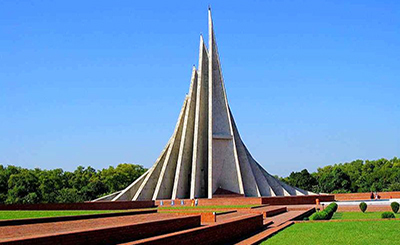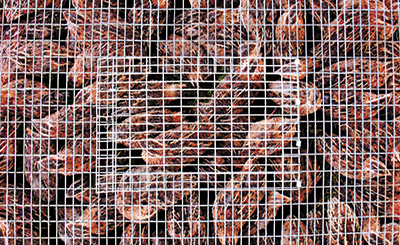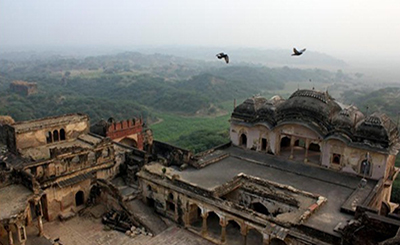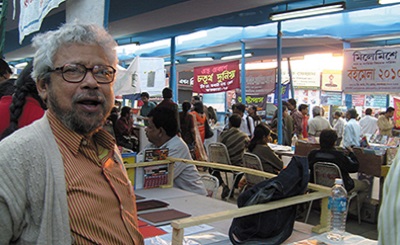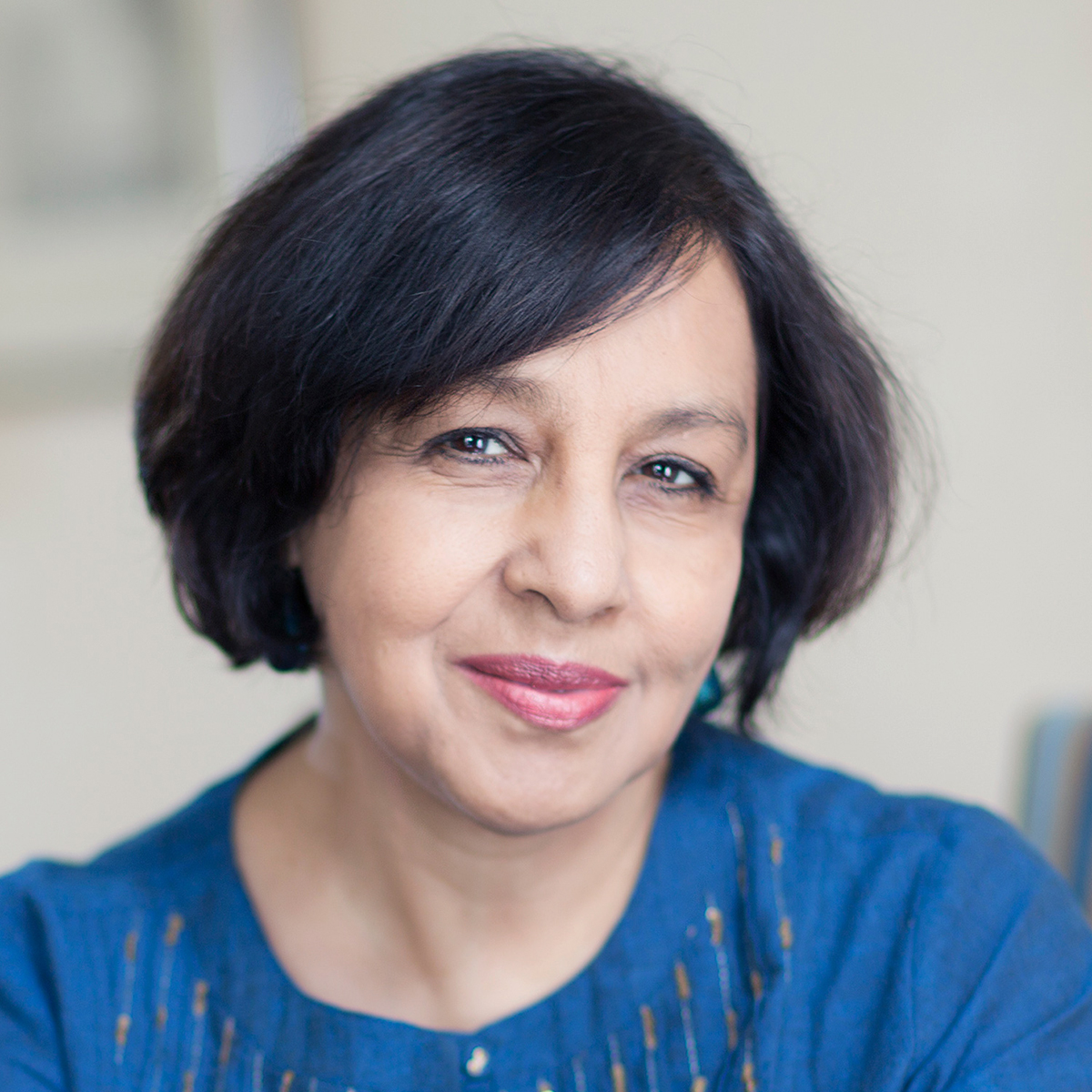
Rukmini Bhaya Nair. Photos courtesy of the author
Poet’s Note: ‘Poetry gives us a lexicon that bears witness to the unspeakable’
I began this sequence of poems after the terror attack in Mumbai on 26.11.2008. Thirteen years ago. Today, on the eve of its being published, there have been tragic iterations of that attack by white men in America and New Zealand, by powerful governments — and by a virus that had brought our turning world to a standstill. It is not clear to me that poetry can work its traditional enchantments in this torn world. Yet, listening to the African American poet, Amanda Gorman, all of twenty-two years old, read at President Joe Biden’s ‘masked’ inauguration in January 2021 my attention was drawn to other not-so-traditional poetic virtues such as its marvelous capacity for verbal activism.
My present book, Shataka: The Quarantined Tongue, is addressed, in the main, to the Sanskrit grammarian Bhartrhari, who also doubled up as aactivist poet, maybe — and then again, maybe not. Some online notes:
Bhartrhari: (born 570? Ujjain, Malwa, India — died 651?, Ujjain) Indian Hindu philosopher, poet, and grammarian….Vakyapadiya is his major work on the philosophy of language. Also ascribed to him are three collections of poetry, each containing 100 verses: Shrngara-shataka (on love), Niti-shataka (on ethics and polity), and Vairagya-shataka (on dispassion).
Going back to more recent history, it is a matter of record that the city of Mumbai went up in flames between the nights of 26 and 29 November 2008, while an entire country watched, mute witnesses to terror disseminated via glassy television screens. Later, in my insubordinate mind, this shocking event somehow became paired with other events, other losses that occurred in decade and more since the fateful attack in Mumbai. These assaults included the impossibly brutal public rape in Delhi of the young woman named ‘Nirbhaya’. The outrage aroused by Nirbhaya’s rape lay in the fact that it was one with infinite echoes, replicating multiple forms of unrecorded violence against the vulnerable all across our ahimsa-chanting country.
In the past decade, we’ve observed exactly how electrifying the desire for ‘change’ can be in a country with a youthful populace that simply wants to get on with it minus all the boring history lessons involving endless layers of memory and metaphor. Pandemics, polarisations, hate, hunger. What in hell’s name can poetry do in such urgent circumstances? Is it not the law, campaigns for social justice and political participation that really matter? But of course! That goes without saying. Poetry, however, is off course. It records emotional turbulence and unfinished business.
Fact is, Nirbhaya wanted to live. Despite the horror that happened to her, despite the callousness of the public who passed her by, despite police indifference, she wanted to live. Tragically, she did not, as in another faraway land in 2020 George Floyd did not, either. Yet their will to survive present terror signaled an absolute, undeterred faith in the future. It is the same with the labor trekking in 2020 out of the city of Mumbai to far outposts in Muzaffarpur and elsewhere.
For me, poetry as a genre registers something of this ‘triumph of hope over experience’. Poetry gives us a lexicon that bears witness to the unspeakable. It improbably yokes despair to hope and quarantine to freedom. That, I believe, is a prime reason for the continued existence of this ancient, indelible form.
As for the 21st century, the rise of very powerful electronic media has in recent times brought to our attention endless explosions of violence and terror, often gendered and state-driven. At the very moment when a triumphalist narrative of ‘liberalization’ and ‘development’ has boomed in one ear, the great noise of cruelty, injustice and social divisiveness has reached us in the other. If we are confused, it is with reason. I believe that the manifestations of poetry today, not to mention its manifestos, enable us to respond to these many schizoid confusions without necessarily buying into a linear and temporal order of things.
Here I return to the history — and to Bhartrhari the poet-grammarian. How, I ask in these counterfactual poems, could I ever explain to someone like Bhartrhari — who lived in an age before mobile phones, automatic weapons and RDX — what modern ‘terrorism’ amounts to or how modern medicine works its mysterious, covert magic? He spoke of life and death in terms of eternity; we focus now on the everyday. How might a language-terminus be built between Bhartrhari’s sage, leisured meditations and our frenetic age of 140 twittering characters where even our most important messages seem to tend towards ludic doggerel and limited telegraphese?
In the process of this confused questioning, I discovered, too, that Bhartrhari was a near contemporary of the Prophet Muhammad, also born in the sixth century. So how would these wise, erudite figures from the past have conversed with each other? What thoughts on mankind’s obsessive violence would they have exchanged? It is out of these out-of-time and, very possibly, out-of-line questions that my present, quite unanticipated, inspiration has emerged.
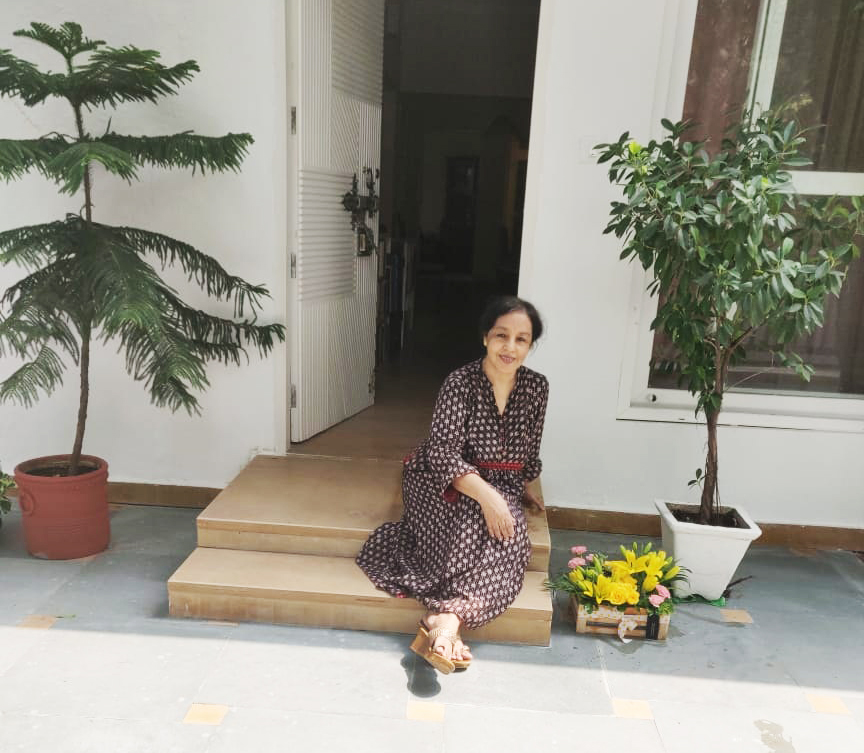
The verses in this book attempt to convey to the sharpest of pre-modern minds some of the most intractable of the dilemmas confronting us in the fraught 21st century. Looking back at my three previous volumes of verse, I realize now that I might have been struggling in all of them to describe precisely those strained relations between poetry, prophecy, philosophy and personal experience that Muhammad and Bhartrhari had in their wisdom mastered so long ago. Bhartrhari’s poems present these conflicts as the three-fold social plait of niti (law), sringara (love) and vairagya (giving up, in both senses!). I have learnt much from him — as I have from Prophet Muhammad.
In Shataka, I continue to be puzzled about the role that poetry plays in our lives. I think I may have come to believe over the years that poems are somehow secular prayers, a sort of primal muttering while going down on our knees with shuttered eyes. Exactly why we indulge in this odd behavior is hard to fathom. Archibald MacLeish once famously wrote that ‘a poem must not mean but be’. Living in the rapidly mutating 21st century, I am persuaded by a simpler thesis: a poem should not be mean. Just that. To me, complacency, meanness and intolerance seem terrible traits in a person, though many would deem these lesser flaws than, let’s say, uncontrolled rage. Conversely, the limited ‘virtues’ I prize in my muddled fashion include generosity, curiosity, empathy, egalitarianism and, importantly, irreverence. Good poems, I feel, foster the latter set of attitudes because they enable better conversations with our other, less familiar, fantastical and sometimes even fantastically evil, selves. My hope for this collection of Bhartrhari-style ‘shataka’ (the word means ‘one hundred’)* is that it is in keeping with the always unfinished human project of un-quarantining our fettered selves and our imprisoned imaginations.
From the Introduction to the forthcoming collection, Shataka: The Quarantined Tongue
*******
Cow
o cow against the yellow calendula
you do not need another poem
a poem is the last thing on your mind
if I can call that rocky space between the almost paisley
tall tender patterns, the tendu leaves of your ears, a mind
but if it is a mind, and this is a huge, a cosmic, if
it is a buddha mind, carrier of sorrow, unmoved by fear
any one can see that pain, it moves in your bony rump
it shows in the large, dark jewels of your eyes
full of unshed longing
cow, you carry your gender
like a calf, within
so why would you need a poem, cow?
you are the soul of any lyric
you are a poem
yourself, swayambhu
like poetry, you remake yourself
broken and bloodied, and then
milk-fresh
in every calving
a lethal dose of pain and fearlessness
that's poetry
and it was with you in the Geeta
and when you ambled with Yagnavalkya
all through the Brihadaranyaka, making legends
and it is with you now
just watch you walk
in the death's-head traffic
honks and roars and blazes on all ten thousand sides
teetering on your small black patent high-heeled pumps
old-fashioned, dainty, calm as a grandmother among frisky kids
great matriarch in the huddled mists of winter
skittish young thing in summer, wiggling
your frilly dewlap, always the complete
woman, following the herd
being driven
by a man
Gopala
you remember him, child and god
oppressor, exquisite in blue
o cow with the black mouth and champaka body
what centuries speak in your silence, what old flute
blows
his poems still lilt through the boulders of your mind
agonize in its leafy groves, whispering
nothing has changed
though you march with the herd, you are alone
though you are sacred, you are not beloved
thrusting your nose into city garbage
unembarrassed, a fly-blown beggar
driven from the dusty villages
how do you stand it, cow?
you have lived too long with fear to feel afraid
survived Gopala and his antic idylls
nothing disturbs you, nothing
destroys
your peace
your hulking grace
your buddha somnolence
a bulwark against action
but I ask you why, impassive cow?
is this reward enough
is this what it means to be a poem
is this why you grieve, revengeful queen
why you breed and why you just will not die?
o cow in the golden godhuli alo
among the hay-ricks, among
your knobbly calves
jingling home
contented
those horns you wear
what for, cow?
ornaments?
moons on your forehead?
just one other poetic embellishment?
certainly I cannot imagine you using them in self defence
but would you not use them in a war, a hold war
would you not use those horns in battle
that rocky head, those swishy
appendages and sinewy feet?
o cow against the yelow calendula
so immobile, so still, so bloody
beautiful, you could win
anything you wished
everything
you may insist you are a mother, cow
and that you would prefer gentler tactics, but it has
come to this, a fight, a mettlesome tossing of heads
a charge
and now what?
it is not only bulls that charge
that is a myth, an absolute myth
it is the story Gopala got away with
those killing horns, cow, belong to you
and poetry
that is yours too
because you are a poem, and because
you have been a poem, and bred poems, for so long
a poem is always a charge
Gopala’s dharmakshetra, flashing
battleground, place of terrible victories
if you are charged with poetry, cow
if you flaunt on your head
its perfect crescent
if you are
in charge
there is no going back, cow
o cow against the yellow calendula
Note: This poem from The Ayodhya Cantos (1999) was originally titled ‘Gomata’.
She Speaks
all my life
I wore my clothes
as a woman should
— like a shroud
I combed my hair
as a woman should
— like a cloud
I spoke my words
as a woman should
— soft, not loud
But now I know
that a woman would
gain that world
She never could
if she did the things
she never should
And let those clouds
come down in rain
again, again, again…
and even if this stubborn type will not allow these slipslop lines
to dip and curl and blow away let me think thunderstorms, think rain
O damn the shoulds and muted coulds, let methink hail
let me think words coursing down,
let me think rain…
And He Speaks of Rules
First, that’s not a poem, you say, it’s a dirge and second, it’s ungrammatical.
Ah, Bhartrhari, woe is me! You spot the glitch so blistering fast.
I see you’re not a grammarian for nothing. The verb ‘think’ can hardly
Take the object ‘rain’. You may think the world is full of sorrow
Or a woman unclean when she monthly bleeds. Or that civilization
Would fall apart without safety-pins, cello-tape and blue-tack to hold it
Firm — but you can’t think rain and pass it off as poetry! Besides, if that
Was supposed to be some sort of sentimental tribute to niti just because
Some pinched, unfortunate creature spent her witless life following witless
Rules, forget it. That’s not what niti means — anymore than you’re a poet!
But Where There Are No Rules, Who Rules?
My point is, this is neither about poetry nor noble conduct — it’s about tragedy.
We grieve, Bharthari, we grieve. So, do you think it matters one sodding bit
To me what niti meant to you, whose fragrant kitchens served up sweet cardamom
Milk and mustard lentils but who could never imagine the taste of potato or
Chilly-hot tomato chutney because these items came to us via the warlike
Portuguese ten centuries after you were dust. After, that’s the operative word!
Let’s face it, Brat — may I call you that? Our tastes are different. You knew nothing
Of America, Prozac, immortal viruses or Picasso’s break-neck assaults on the human
Frame. Bollywood, now what would you make of it, or a rockband called Atom-
Bomb-Pocket-Knife? O Bhartrhari, how would your niti handle the sad 21st century?
The essay and the poems are part of our Poetry Special Issue (January 2021), curated by Shireen Quadri and Nawaid Anjum. © The Punch Magazine. No part of this essay or the new poems exclusively featured here should be reproduced anywhere without the prior permission of The Punch Magazine.
More from The Byword
Comments
*Comments will be moderated







